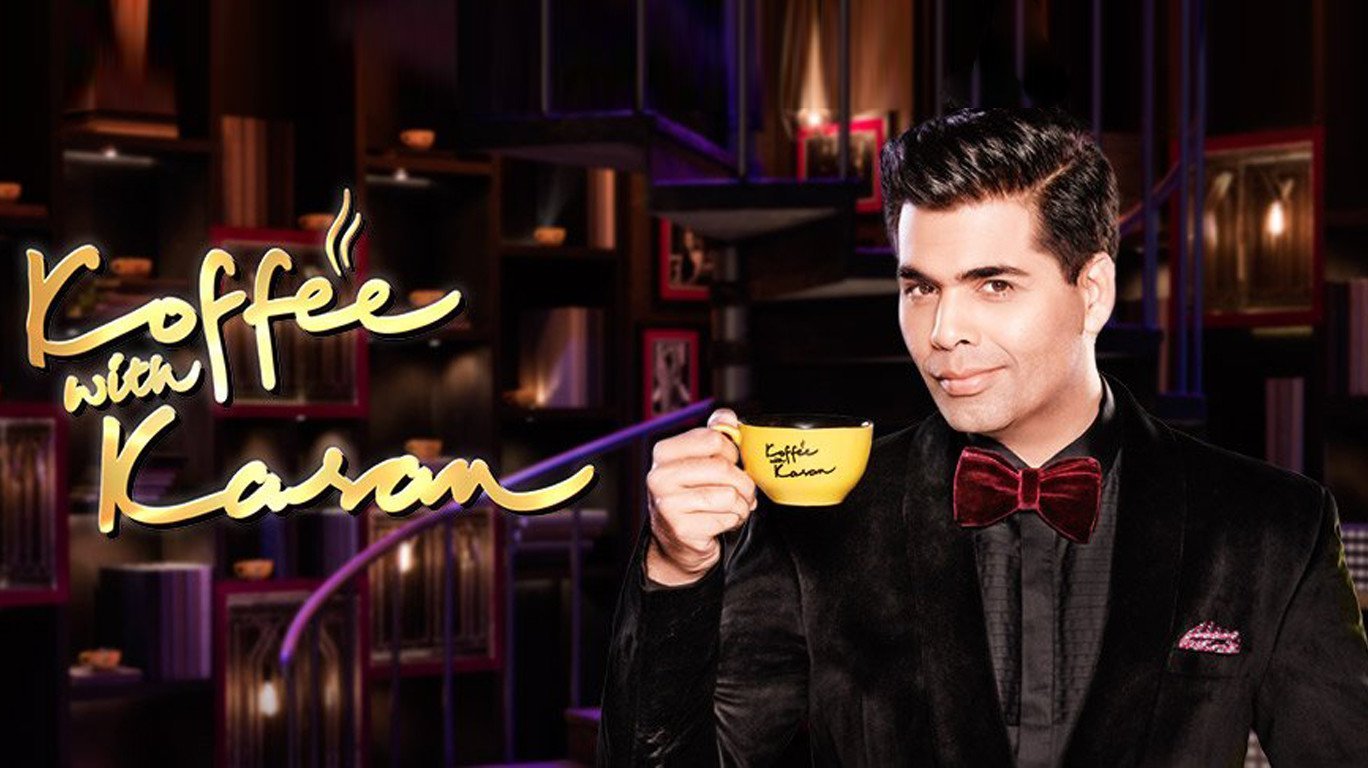As the sixth season of Koffee with Karan comes to an end, it leaves behind a trail of misogyny, body-shaming, toxic masculinity, and a new wave of nepotism. The eponymous host of the show, through the 14 years that the show has been running, has created controversy year after year, through the revelations he brings out and the elitist theme of the show.
While the biggest one this season is undoubtedly following the episode with cricketers Hardik Pandya and K.L. Rahul, it is also necessary to address the subtle undertones of sexism and misogyny that are ubiquitous in the conversations between Karan Johar and his various guests from what is indisputably the biggest Film Industry in India.
As Varun Dhawan said, “it is the massiest show on television.” So, when a Karan Johar repeatedly points out how lucky Ajay Devgn is because his wife, Kajol (who is a successful actor herself) doesn’t like expensive things, he is reaffirming the perceptions of women being caregivers while men are the bread earners. In the same vein, his introduction to the couple also alludes to the same – Ajay Devgn: the superstar and Kajol: his wife. Similarly, When Karan Johar asks for actors to be ranked in order of their sex appeal, it gives a license to the ‘masses’ to follow suit.
As a self-proclaimed feminist, one would imagine that in his capacity as a producer, Johar would ensure equal pay for his ‘leading ladies’. However, when this issue is brought up by Varun Dhawan and Katrina Kaif, Johar dismissed it as “something that will never happen.” Johar has, in fact, explicitly admitted to ending his friendship with Kareena Kapoor Khan; when she asked for her pay to be matched with that of her male co-stars. Although the incident in question took place more than a decade ago and could maybe be dismissed if the ‘experience’ factor is taken into consideration; in case of Dhawan and Katrina, the same doesn’t apply, in
With the #MeToo movement taking Bollywood by storm, the writers of a show that is not only watched
widely, but also scrutinised minutely, should tread sensitively on issues that deal with sexuality.
Additionally, it is disturbing to see the matter-of-factly tone used by actors in the industry with regards to Salman ‘Bhai’s’ relationship with Katrina and the position she holds because of it. This type of blatant commodification, both in case of Kajol and Katrina Kaif, has led to women being viewed, first in their roles as daughters, wives/partners, mothers and sisters; rather than as individual identities, recognised for their body of work.
Also read: Koffee with Kringe: Can We Stop With The ‘Boys Will Be Boys’ Narrative Already?
It is also unfortunate to see that there was only one episode that addressed the #MeToo Movement. While Aamir Khan acknowledged the predatory behaviour of the men in the
The extensive reach of the show, not just on television but also on digital platforms, gives Johar an opportunity to address serious issues within the industry. But by focusing only on personal relationships (and even here, not addressing the covert allegations of philandry and violence) and ranking talented (and some, not-so-talented) actors based on their ‘sex-appeal’, ability to gossip, shop, keep secrets and many such profound categories – he fails to effectively create change.
While enough and more has been written about Hardik Pandya and K.L. Rahul’s insensitive responses, perhaps it is also important to touch on Johar’s explicit endorsement of their comments; brought on, in fact by the questions asked. The bigger question on the script, which has always aimed at objectification, of both male and female actors, needs to be addressed. The show fails to recognise the way it belittles issues like informed consent – when questions on philandry and the sexual exploits of the ‘stars’ of Bollywood are treated with mirth.
It is disheartening to see, not a single celebrity taking a stand against questions that objectify, commodify and sexualise their peers.
Karan Johar has perhaps taken the tagline of the show ‘stop making sense’ way more seriously than it should be. It is disheartening to see, not a single celebrity taking a stand against questions that objectify, commodify and sexualise their peers.
In 2015, an Indian man in Australia was acquitted of charges for stalking, citing Bollywood films for influencing his behaviour. When the grounds of acquittal for a crime like stalking is given as cultural background, the industry under question needs to pull up its socks; not just through what they portray in films alone, but how they present themselves in media.
In extension, digital platforms like H
Also read: Hotstar, Can We Face The Problem Instead Of Taking Down Episodes?
One can only hope that somewhere in the near future, the film industry and the artists that make it would imbibe the message from Asli Hip-hop in Gully Boy:
“Kalakaar main, kal ko aakar doon
Yehi hai mera dharm
Meri dusri koi jaat na”
“I am an artist, I shape the future
This is my only duty
I have no other religion”
Featured Image Source: Mumbai Live
About the author(s)
Dhwani is an architect, writer and assistant professor at Balwant Sheth School of Architecture, NMIMS. She has an MA in Women’s Studies and identifies as a professional dog-cuddler.





Actors are paid salaries depending on their box office power. When a Salman Khan is paid 60 crore and a Kareena Kapoor is paid 10 crore, it’s not because Salman is more talented, it’s because he can bring in the money.
On the other hand, as Deepika Padukone was more successful at the time, she was paid more than both Ranveer Singh and Shahid Kapoor.
So when Karna Johar dismissed equal pay, it’s because in these cases actors are not equal. It all depends on their box office power.